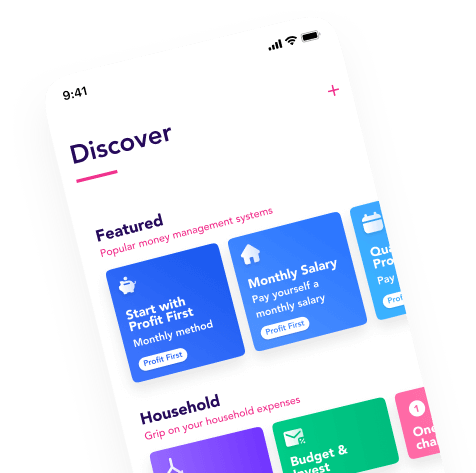
The answer to that question is hard to find online. The subject is often skipped in explanatory videos and manuals and it sounds mega complicated. Yet every zzp'er has to pay it, so there is no escape. In this blog we explain once and for all what the income-related contribution to the Healthcare Insurance Act is for self-employed people.
Another contribution? But I already pay health care premiums
That's right. We all pay health care premiums to our health insurance company. Self-employed or not. But in addition to this care premium, everyone also has to pay a contribution to the Healthcare Insurance Act. If you are employed, your employer pays this directly. If you are not a freelancer, you do not have to worry about it at all. But if you work for yourself, then you have to pay it yourself. And therefore also take it into account in your savings / budgeting plan. So how does it work?
The word says it all: income-dependent
The amount you have to pay depends on your income and varies from year to year. This is because your income can vary each year, but also because the percentage you have to pay is recalculated each year by the tax authorities.
Are you lost yet? We'll explain:
Every year the tax authorities set a percentage for the contribution to the Health Insurance Act. For example, in 2021 it was 5.75% and this year (2022) it is 5.50%.
You pay this percentage of health insurance contributions based on your profit. So it means: the higher the profit, the higher the contribution you have to pay. But not all profits can be taxed. As an entrepreneur, you can sometimes deduct amounts from your taxable profit. For example, in these cases:
- If you work more than 1,225 hours per year as a self-employed person, you get a self-employed tax deduction of €6,310 (2022)
- Are you a starting freelancer (started less than 3 years ago)? Then you get € 2,123 starter's tax credit (2022)
- In addition, every entrepreneur gets an SME profit exemption: 14% of your taxable income is exempt from tax.
An example calculation
Suppose you have been self-employed for 2 years and your profit this year is 50,000 euros. Then you first check which of the above amounts have to be deducted. The profit you then have left over, for example 35,748 euro, determines the amount for the healthcare insurance act. In this case, then 5.50% of 35,748 = 1966 euros, which means you must pay 1966 euros.

When and how do I pay this?
As a starting entrepreneur or small entrepreneur, you pay the health insurance contributions after your income tax return. If the tax authorities expect you to make a profit again next year, you must pay it as an advance payment based on an estimate. So you do this once a year. You must always file your tax return before May 1. Once you have completed the tax return, you will receive an assessment for your healthcare insurance contribution, which you then pay.
Make a jar for it!
As a self-employed person, you usually pay the contribution in one go. Fortunately, you can use Flow to ensure that you put your contribution aside on time. By making a jar for it in your bank account and saving for it throughout the year, you can be sure that you will be able to pay it when the tax envelope arrives on your doorstep.
You can do this easily by using the calculation example above to estimate how much you will have to pay. If you know that, then divide it by 12 and use Flow to set up a fund for the healthcare insurance automatically.
Disclaimer: this is not financial advice.
